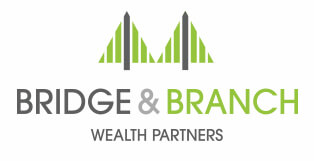Everyone needs to have some level of financial literacy to help manage their finances. However, financial literacy becomes even more crucial when you’re a business owner. You need to become familiar with common terminology and business finance principles to help you stay abreast of trends in a constantly changing market. Here are some concepts that financial literacy encompasses and why having financial literacy is crucial in business.
What is Financial Literacy?
At the broadest level, financial literacy is understanding and implementing various financial skills, including budgeting, investing, and personal financial management. These activities may also include creating contingency plans, forecasting, and understanding balance sheets or cash flow statements in the business context.
How Business Owners May Benefit from Financial Literacy
You are operating blindly without financial literacy and a solid grasp of your business’s numbers. You may not know if the company is profitable, what areas you should focus on or improve, and what the prospects are for your company.
Create a Financial Plan
Your company should have, at a minimum, a balance sheet, an income statement, and a cash flow statement. These documents give a snapshot of your business’s financial health and help you identify areas for improvement or impending future expenses. They help you create a financial plan for your business.
Your financial plan should include factors such as:
- Startup costs
- Annual and monthly operating expenses
- Projected revenues and monthly or annual targets
- Depreciation
- Overhead costs
- Personnel costs
After your financial needs are clear, you have a better idea of how much revenue you need to generate to work toward your goals.
Track Your Progress
Just as it is important to set up a financial plan and begin tracking cash flow and operating expenses, it is also important to regularly track your progress and ensure that you are hitting your financial targets. Some business owners review statements every week. Others do this monthly or quarterly. If you are not seeing the progress you hoped for, you can make changes before things go too far down the wrong path.
Manage Cash Carefully
Cash is one of the most common vulnerabilities for any small business. Cash on hand accounts for 15% of all embezzled funds, and cash theft is among the toughest types of theft to trace.1 Using software to help log and track cash transactions and employing cash control measures may help secure these funds from theft while you are not paying attention.
When it comes to business, profit, and cash flow are key. Without some financial literacy to help you evaluate the many economic measures you may track; you may not be able to make the well-informed decisions necessary to keep your business moving forward. Consulting with a financial professional may help guide your business in a positive direction regarding financial decisions.
Important Disclosures:
The opinions voiced in this material are for general information only and are not intended to provide specific advice or recommendations for any individual.
All information is believed to be from reliable sources; however LPL Financial makes no representation as to its completeness or accuracy.
This article was prepared by WriterAccess.
LPL Tracking #1-05359966.
Footnotes
1 56 Relevant Employee Theft Statistics: 2023 Data on Perpetrators & Prevention
https://financesonline.com/employee-theft-statistics/

